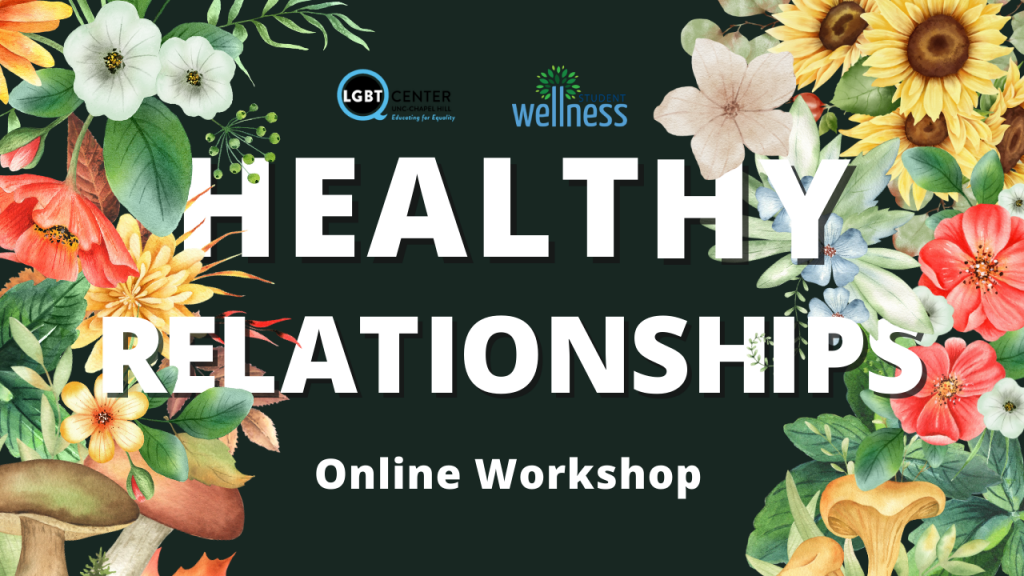
The Healthy Relationships Online Workshop is temporarily suspended as we migrate to Canvas.
Course Overview
This course explores the unique challenges in relationships involving sexual and gender minorities. The contents in this course apply to all relationships, whether they are for one night or for many years. As discussed in the first module, relationships can take many forms. Similarly, we use the word “partner” to refer to anyone with whom you might be sexually and/or romantically involved.
Additionally, the modules in this course are centered on the experiences of Lesbian, Gay, Bisexual, Transgender/Trans*, Intersex, Queer, Questioning, Two Spirit, and Same Gender Loving communities, though the information is applicable to people of all sexual orientations and gender identities. Since the experiences of people who identify with these terms are not monolithic, throughout the module you may find that on some pages, the acronyms LGBTQ, LGBTIQ or, LGB may be used at different times. The language in these modules also intentionally uses gender nonspecific pronouns (they/them, his/her/hir or she/he/ze).
Course Objectives
By completing all five (5) modules, we anticipate that you will increase your:
- knowledge of characteristics of healthy and unhealthy relationships,
- awareness of the characteristics you desire in (relationship(s) or partner(s),
- knowledge of conflict resolution skills,
- awareness about interpersonal violence, and
- knowledge of bystander and ally skills.
Background
This curriculum began as a two-hour workshop developed and led by the Director of UNC-Chapel Hill’s LGBTQ Center, Dr. Terri Phoenix. As the program developed, additional content was added and Carolina students were recruited and trained to facilitate a three-session workshop for Carolina students interested in learning how to create and sustain healthy relationships. This workshop content was then adapted into online modules to allow participants access to the information at a convenient time and location at any point during the year.
We recognize that people’s lives are all different, and the strategies we present may fit into your lives in different ways. We worked to make this information as broadly relevant as possible, but we also recognize that LGBTQ people sometimes have struggles with physical health, mental health, safety, and material needs that present unique challenges. So as we move through this course,
we will ask you to creatively consider how the information presented might fit into your life, as well as what challenges you might need to address in making it work for you.
These modules have been developed as a collaboration between the LGBTQ Center and Student Wellness at The University of North Carolina at Chapel Hill. Thanks to Student Government’s Student Safety and Security Committee for funding the development of the modules in Spring 2013.
Getting Access
Healthy Relationships Online Workshop is temporarily suspended as we migrate to Canvas.